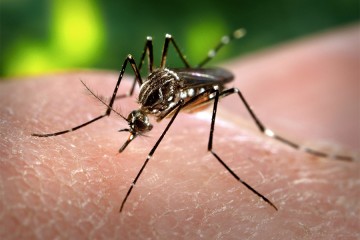Zika virus has emerged as a major health concern in some parts of the world, particularly in South America and Central America, prompting the World Health Organization to declare a "public health emergency of international concern" earlier this month.
So how can people traveling to Zika-affected areas and other warmer climates protect themselves from the mosquito-borne virus? The key, according to Johns Hopkins Medicine expert Crystal Aguh, is to keep the mosquitoes away. Experts recommend:
Clothing
- Wear long pants and long-sleeved shirts
- Wear clothing treated with permethrin
Insect repellant
- Apply Environmental Protection Agency (EPA)-approved insect repellent to areas of exposed skin. Mosquito repellents containing DEET are considered the most effective. Insect repellents that contain ingredients such as oil of citronella, picaridin and oil of lemon eucalyptus also provide protection
- When using sunscreen and insect repellent, apply the sunscreen first
- Insect repellent containing a concentration of 30% DEET provides protection for two to four hours. Higher concentrations of DEET can last up to six hours
- Be sure to reapply insect repellent if you will be outside for an extended period of time or if you are engaging in water activities
- Remove insect repellent by washing treated skin thoroughly with soap and water
For children
- Do not use insect repellent with a concentration of more than 30% DEET
- Avoid hands, eyes, mouths, or cut or irritated skin when applying to children
- Insect repellents are not recommended for children younger than 2 months old
For pregnant women
- Insect repellent containing DEET and picaridin are considered safe for women to use during pregnancy
Posted in Health
Tagged zika virus









